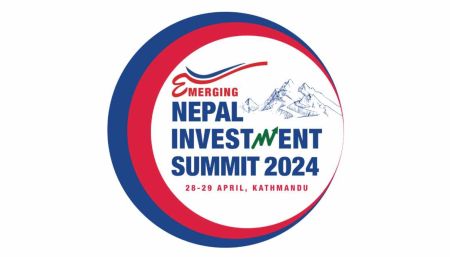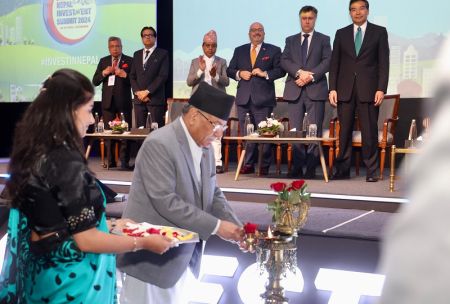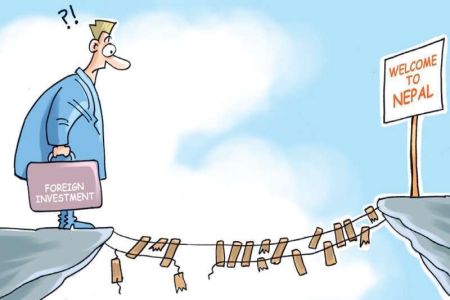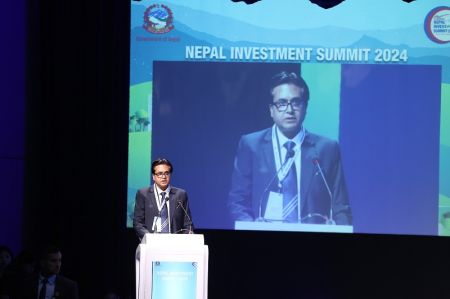
Dr Bijay KC
Faculty Prof and Dean
South Asian Institute of Management (SAIM)
What is driving the growth of management schools in Nepal? How do you think it’s going to shape up in the foreseeable future?
I have been quite satisfied with the way things are. A good number of management schools have come up in recent years because there is a huge demand for management graduates in the job market. However, I must admit that we must adapt ourselves to the fast changing scenario of business education. The schools should also become receptive to the needs of the business enterprises because ultimately it’s they who are going to provide employment to the students graduating from these schools. I also feel that the government should take an initiative to come up with a new university that will specialise in management studies. At the same time, such a university should permit only such schools and colleges that have proven themselves in the field of management education. Another important aspect is that the faculty of business schools must have a say in matters related to examinations and quality control because they best understand the needs of the students.
Is the Nepali business schools’ curriculum well prepared to meet the demands created by globalisation? What is SAIM’s curriculum targeted at – producing job seekers or job creators?
We, at SAIM, offer a programme called MBA Global Business in affiliation with Pokhara University which, fundamentally, exposes our students to global management practices. We do have some courses on entrepreneurship which are targeted at developing job creators of the future but a majority of the students prefer to join different sectors as professionals. As for a job creator, an entrepreneur must also have some knowledge on marketing, finance and resource etc. But I do realise that to make our programme more entrepreneurship-oriented, we need to have more courses included in the curriculum by our parent university.
Could you tell us about the teaching methodology at SAIM? Are the students forced to study foreign cases primarily because there is a dearth of home-grown cases?
Yes, we mostly use foreign case studies and I see no harm in using those. These cases are actually very good and a management education’s basic purpose is to develop the skills of the students. We do have a few good home-grown cases which we use. You must understand here that good case studies are hard to come by and writing them is not an easy job.
Some corporate houses are sponsoring their fresh employees to study in foreign colleges. Do you think there is a lack of trust, on their part, in the quality of our colleges and curriculum?
I think more than anything else it is to make their employees gain further knowledge and equip them better. If they didn’t have faith in the quality of education we offer, they wouldn’t hire them in the first place. My feeling is that management education is a lifelong asset for the students. Getting an MBA degree does not mean that the students know everything about management. My recommendation to the corporate houses is that after three-four years of work experience, they should look at sending these students for further studies abroad.
A lot of students are going abroad to pursue management degrees? Why are the local colleges not able to retain them here?
The fact of the matter is that, now-a-days, a lot of Nepali students want to pursue management degrees. It’s a classic case of demand overwhelming supply as the number of seats available in Nepal’s business schools is not adequate to accommodate all these management degree aspirants. We understand that there is a need for more business schools and more seats. At the same time, we cannot afford to compromise on quality. Among the many business schools operating in Nepal, there are only about four or five of them providing quality education. This limited number of colleges can accommodate around 200 students at best. It’s but obvious that a lot of students not finding a seat in these colleges will look to go abroad. Besides, some good students may get admission to world renowned business schools like IIM or Harvard, for example. In such cases, we cannot be unfair and ask them to stay back in the country for our own selfish reasons.
How suitable is your curriculum for the typical business environment of Nepal?
The basic concept of management education is the same around the world. For example, a course on inventory management is same whether in the US or here in Nepal. A lot of cases provide a wider perspective of problems therefore; we look at applying them in the context of Nepal. In some cases, we have to resort to modification to suit the business needs locally.
Why do you think there is tremendous attraction to business studies these days?
It is because of the job opportunities available to management graduates in recent times. In the last decade-and-a-half or so, corporate entities have realised the importance of having them in their ranks. It has become relatively easier for MBA graduates to start professional careers based on their education. Besides, these graduates have performed and proved themselves at their respective workplaces which have compelled companies to hire suitably qualified management graduates. So, job opportunities coupled with career enhancement prospects have been instrumental in attracting scores of students towards business studies of late.
Do you think MBA graduates from Nepali business schools are paid lower than they deserve?
As far as remuneration is concerned, it basically differs from company to company. From the companies’ perspective, if they want to have bright students working for them, they must be prepared to pay handsomely to attract them. What also matters is an individual’s ability, he/she must be prepared to perform and prove his/her worthiness to command better remuneration. Having an MBA does not automatically guarantee an excellent pay. I am sure even if some students may begin their careers by agreeing to work for a package that is less than their expectation levels, they can always prove themselves first and then demand a better pay package.
Tell us the way you go about campus recruitment at SAIM.
At the end of the two-year programme, we prepare profiles highlighting academic background and credentials of all students that are passing out and distribute the profiles among the interested companies. A lot of these companies evince interest in particular individuals so we act as a link between the two. It’s both established companies as well as upcoming ventures that hire our graduates.






















